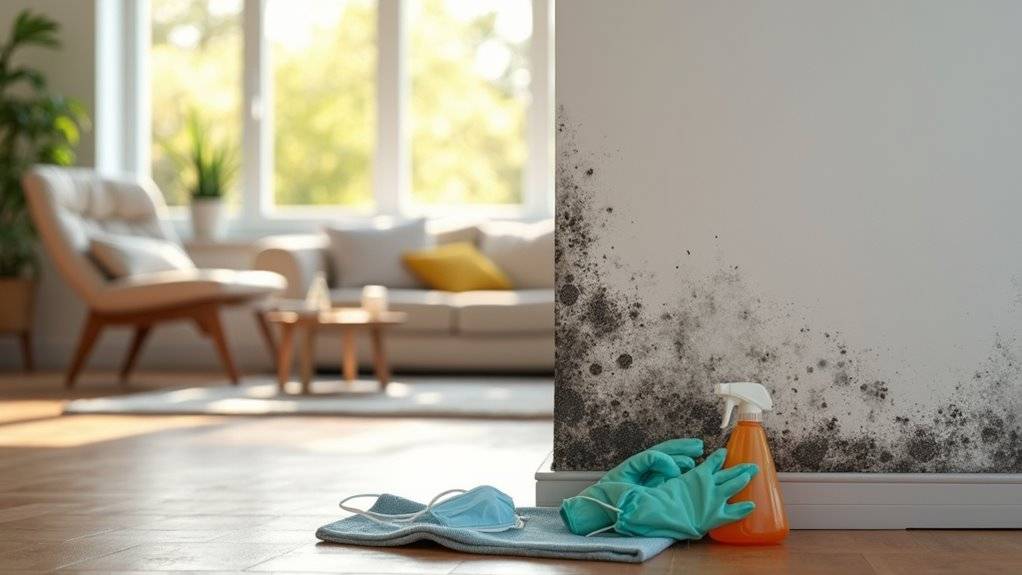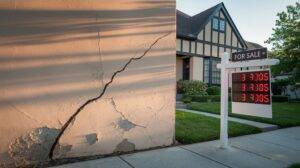Mold can be a big problem when you try to sell your home. Buyers are careful and will notice any issues. Mold can lower your home’s value and make it harder to sell.
Mold is not just ugly; it can also scare off buyers and cause delays. It might even lead to legal trouble if you do not fix it. You could lose out on the best offers or watch deals fall through.
Yes, you should remediate mold before selling your home. Fixing mold protects your home’s value and your peace of mind. It makes your home safer and more appealing to buyers. This blog will guide you through the steps to deal with mold and sell your home smoothly.
Key Takeaways
- Remediating mold before selling protects your property value and prevents buyers from making lower offers or walking away.
- Mold issues must often be disclosed by law; unresolved mold can cause legal trouble and failed transactions.
- Professional remediation increases buyer trust, supports higher offers, and reduces delays during inspection or appraisal.
- Remediation costs are usually outweighed by the potential for a quicker, smoother sale and fewer liabilities.
- Proactively addressing mold and moisture issues helps prevent future problems and reassures buyers about the home’s condition.
Understanding the Dangers of Mold in Your Home
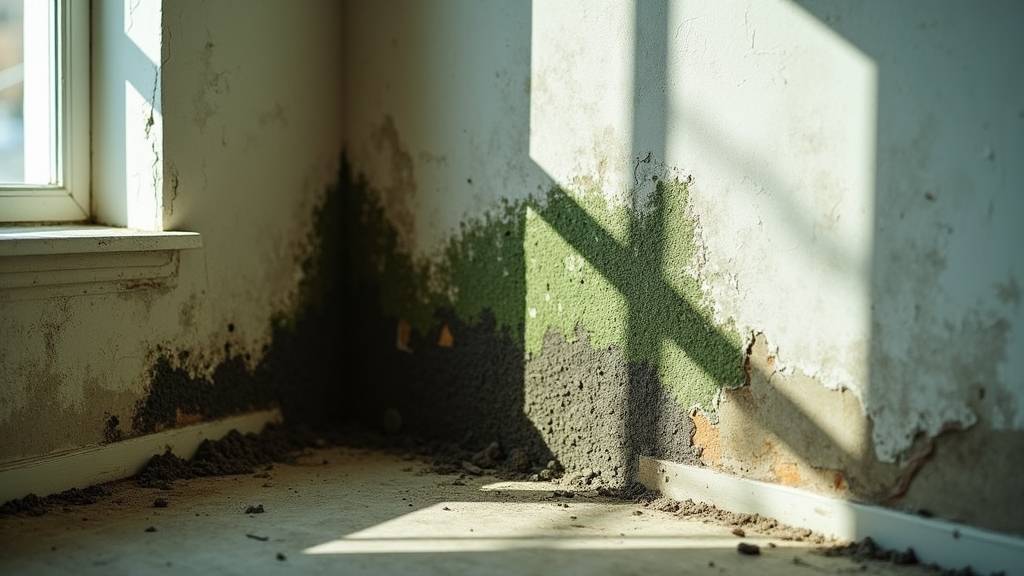
Mold in your home can be dangerous. It can cause health problems and lower your home’s value. If you plan to sell, you should take mold seriously.
Mold may trigger allergies and breathing issues, especially for sensitive people. Buyers might avoid homes with mold problems. This makes it harder to sell your property.
If you address mold early, you can avoid expensive repairs. You also reduce the risk of legal trouble with buyers. Using mold-resistant paint and materials helps prevent future mold growth. Tackling mold early saves money, prevents legal issues, and using resistant materials helps stop it from returning.
These improvements show buyers you care for your home. If you invest in mold prevention, you build trust and make your home more appealing. Taking action now protects your investment and ensures a smoother sale.
How Mold Affects Property Value
When mold is present, you risk a lower home appraisal and diminished buyer confidence. Buyers notice mold issues quickly, which can erode trust and lead to reduced offers or lost sales. Addressing mold proactively protects your property’s value and strengthens your position in the market. Additionally, resolving mold problems before listing can help you avoid potential inspection delays and streamline the selling process.
Impact on Home Appraisal
Mold can lower your home’s appraised value. Appraisers look for problems like mold or water damage when they assess your property. If mold is present, you may not get your desired sale price.
Mold signals issues such as leaks or poor ventilation. These problems make your home less attractive to buyers and appraisers. If you do not fix mold, the sale could fall through.
Professional mold removal before the appraisal shows you maintain your home. This can help protect or even increase your property’s value. A clean, healthy home supports a better appraisal.
Buyer Perception and Trust
Mold problems can quickly lower buyer trust in your home. Buyers may worry about the home’s condition if they see mold. They might also question whether you are being honest about other issues.
If you fix mold yourself, most buyers will still want to see proof of professional work. They feel safer if they know experts handled the problem. If your home has a mold insurance claim, buyers may worry about future repairs or higher costs.
Addressing mold with the help of professionals can protect your home’s value. Clear documentation of the work helps buyers feel confident. This makes your home look like a safe and smart investment.
Legal Requirements for Mold Disclosure
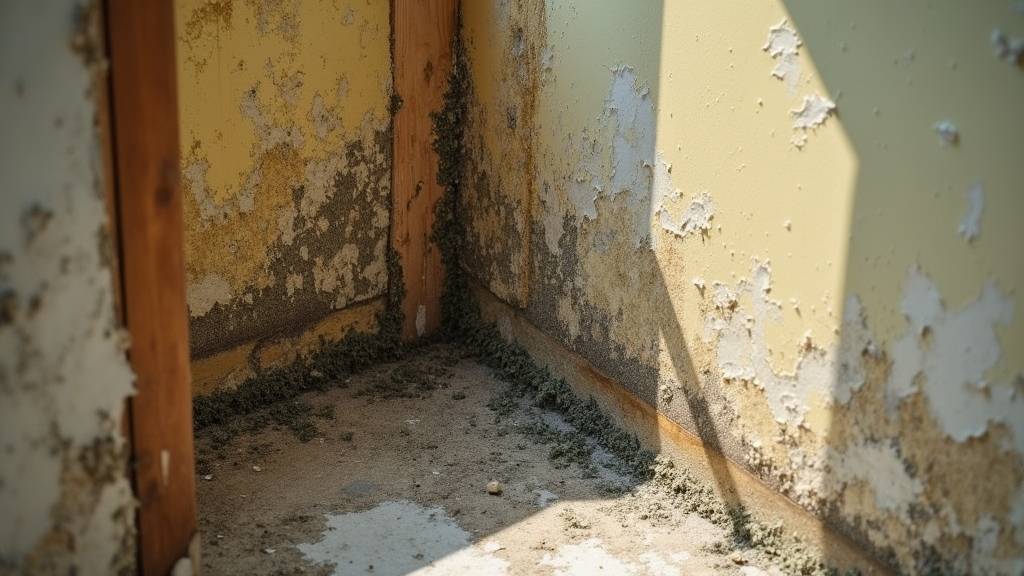
You must follow state laws about telling buyers if your property has had mold. Most states require you to share any known mold problems. If you do not follow these rules, you could face legal trouble or lose a sale.
Some states make mold disclosure mandatory. In these states, you must tell buyers about any mold, past or present. If you do this, you can avoid legal disputes.
Other states make disclosure optional, but it is still smart to share any mold history. Voluntary disclosure can build trust with buyers. It may also help the sale go smoothly.
If your state has no specific rule, use your best judgment. Hiding mold issues can still cause problems if buyers later find out. Being open is usually the safest choice.
You should provide written inspection reports if you have them. This step can make your sale more transparent. If you fixed mold problems, share proof of repairs to increase your property’s value. [Understanding your Legal obligations] and the importance of transparency can help you navigate the selling process more confidently.
Common Causes of Mold Growth
You’ll want to address poor ventilation and indoor water leaks right away, as these are the most common triggers for mold growth in homes. Identifying and fixing these issues boosts your property’s value and appeal. Let’s look at how you can spot and solve these problems before listing your home. Proper mold inspection is essential to uncover hidden issues that might not be immediately visible. Additionally, understanding selling a house as-is can help you decide whether to make repairs or sell the property in its current condition.
Poor Ventilation Issues
Poor ventilation allows moisture to build up indoors. This creates a perfect environment for mold to grow. Areas like bathrooms, kitchens, and basements often face this problem.
Sellers should fix ventilation issues to keep property value high. Buyers now look for homes with good moisture control. If you improve ventilation, you can attract more buyers.
Simple solutions include installing exhaust fans or upgrading HVAC systems. Using a dehumidifier in the basement also helps. These changes lower mold risk and protect your home.
| Area | Ventilation Issue | Solution |
|---|---|---|
| Bathroom | High humidity buildup | Install exhaust fan |
| Kitchen | Cooking steam trapped | Range hood upgrade |
| Basement | Poor air circulation | Dehumidifier addition |
Good ventilation makes your home safer and more appealing. It also helps prevent expensive mold problems.
Water Leaks Indoors
Water leaks inside a home often cause mold growth. Mold needs moisture to grow, so any leak can start a problem. If you see or suspect a leak, fix it right away.
Leaking roofs, broken pipes, or drips under sinks add moisture to your home. Even small leaks can cause mold if left untreated. Always dry or replace wet materials as soon as possible.
Hidden leaks behind walls or under floors may go unnoticed. If you suspect a hidden leak, check these areas carefully. Fixing leaks quickly helps protect your home’s air quality.
If you are selling your house, buyers may avoid homes with mold or water damage. Quick repairs show you care for your property. A dry, mold-free home is more appealing and healthier for everyone.
Signs You Have a Mold Problem
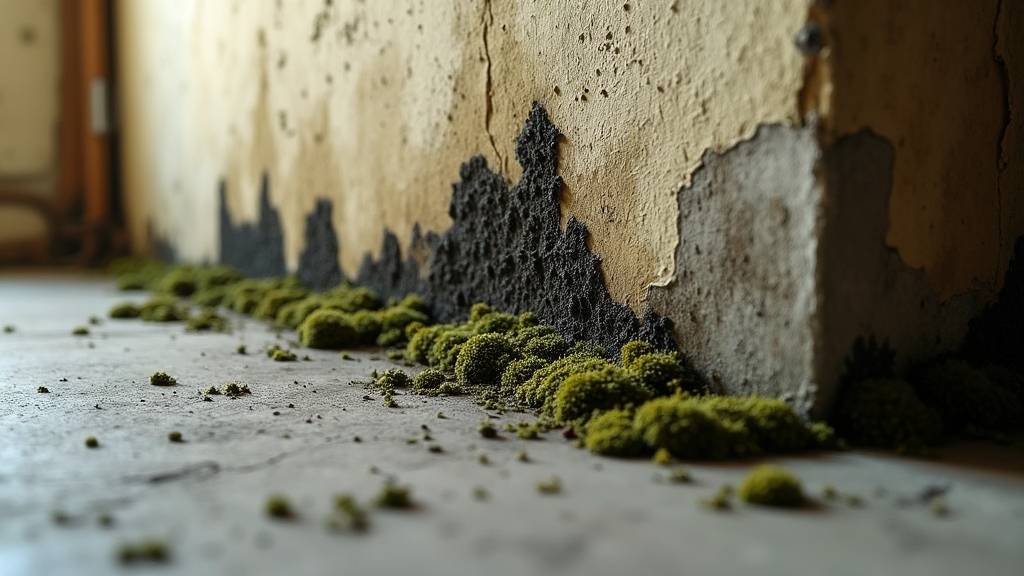
A mold problem often shows up as stains on walls or ceilings. Musty smells, warped surfaces, or peeling paint are also warning signs. Mold can grow quickly in damp areas like bathrooms or basements. Legally disclose should also be reviewed before attempting any remediation or sale.
If you see suspicious spots or notice constant humidity, mold may be hiding nearby. Mold can stay out of sight behind walls or under floors. Buyers will likely find these issues during inspections. If you act quickly, you can stop mold from spreading. Identifying the source is important for successful cleanup. Early action helps protect your property’s value and health.
Professional Mold Testing Versus DIY Inspection
When you’re weighing professional mold testing against a DIY inspection, accuracy and reliability make all the difference in protecting your sale. While DIY kits may appear cost-effective and quick, they often miss hidden problems or provide unclear results. Investing in a professional assessment ensures you get precise answers and avoid costly surprises later.
Additionally, trusted home buyers prefer properties that have been thoroughly evaluated for mold issues, further safeguarding your transaction. Conducting a comprehensive mold assessment can also reveal underlying moisture problems that contribute to mold growth, helping you address the root cause before listing.
Accuracy and Reliability Compared
Professional mold testing is more accurate and reliable than DIY inspection. It gives a clearer picture of mold problems before selling your home. If you want trustworthy results, you should know how both options compare.
Professionals use special tools to find hidden mold that DIY kits often miss. They interpret test results correctly, helping you avoid mistakes that could delay your sale. If you need detailed documentation, professional reports meet buyer and legal requirements.
Certified testers check the entire area and find the source of mold. This helps you plan the best time for cleaning and repairs. If you want to protect your sale, professional testing is a safer choice.
Cost and Time Factors
Professional mold testing and DIY inspection differ in both cost and time. Professional testing usually costs $300 to $900. DIY kits often cost less than $50.
If you need fast results, a DIY kit gives answers the same day. Professional testers take 1 to 3 days for results. Scheduling a professional may also take extra time.
Professional testing offers high accuracy and credibility. DIY kits vary in accuracy and may lead to more questions from buyers. If your budget is tight or you need quick results, a DIY kit may help.
The best option depends on your timeline and budget. If you want buyer confidence, choose professional testing. DIY is better for quick, low-cost checks.
The Mold Remediation Process Explained
The mold remediation process is the steps taken to remove mold and stop it from coming back. It is important to follow these steps to keep your property clean and safe. If you understand the process, you can act quickly when you find mold.
A professional first checks the property to find all mold-affected areas. The type of mold is also identified during this assessment. If you know what type of mold is present, you can choose the right removal method.
Workers then block off the affected areas so mold spores do not spread. If the area is not contained, mold may return elsewhere. Proper containment is key to keeping other rooms safe.
Professionals next remove any materials with mold and clean all surfaces. They use special tools and cleaning solutions for this step. If any mold remains, it could grow back.
The last step is to fix moisture problems and use treatments to prevent mold from coming back. If moisture is not controlled, mold can quickly regrow. Taking these steps helps protect your property in the future.
Understanding the importance of proper containment and moisture control is vital to ensuring the mold does not return and your property remains safe.
Costs Associated With Mold Removal
Mold removal can be expensive. Costs depend on how much mold is present and where it is found. If the problem is small, you may pay only a few hundred dollars.
Larger mold issues can cost thousands. Professional services usually provide a detailed estimate before starting work. These estimates show the price for containment, removal, and prevention.
If you want proper mold removal, you should hire experienced professionals. They follow industry standards and use the right equipment. This helps protect your home’s value and makes buyers feel confident.
Additionally, proper remediation can prevent future mold growth and avoid more costly repairs down the line. Investing in local expertise ensures the job is done correctly and efficiently. If you plan to sell your home, consider the cost of mold removal in your sale price. Weighing the expense against your potential profit can help you decide what is best. Careful planning ensures you make a smart financial choice.
Impact on Home Inspections and Appraisals
Mold in your home can affect both inspections and appraisals when selling. Inspectors look for mold and will note any problems they see. Appraisers may lower your home’s value if mold is not fixed. If inspectors find visible mold, they will report it. This can slow down the selling process. Some lenders might not approve a mortgage until the mold is removed.
Remediation records can help prove the problem is resolved. These records may reassure both inspectors and appraisers. If you fix mold issues early, you can make the sale go more smoothly. Additionally, addressing mold issues promptly can help avoid potential legal or health liabilities associated with selling a home with mold. Being aware of home inspection requirements can help you prepare and prevent delays.
Buyer Perceptions of Mold Issues
Buyers notice mold issues quickly, and this can immediately impact their trust in your property. They’re likely to question both the value of your home and the potential health risks involved. Addressing mold concerns head-on positions your property more competitively and reassures buyers about their investment.
Additionally, being aware of local market expectations, such as North County real estate standards, can help you decide whether remediation is worthwhile before selling.
Impact on Buyer Trust
Mold problems can make buyers lose trust in your property quickly. Even after fixing the issue, buyers may worry it will return. It is important to address these concerns clearly.
You should document what types of mold were found and how they were removed. Third-party inspection reports can confirm that the problem was fixed. If possible, provide warranties or guarantees for the completed work.
Buyers may have questions about the mold and the repairs. You should answer all questions honestly and as soon as possible. Open communication can help restore buyer trust.
Property Value Concerns
Mold problems can lower your property value. Buyers often worry about future damage and extra costs if mold is found. Even after fixing the issue, your home may get lower offers.
Many buyers avoid homes with a history of mold. Lenders may also refuse to finance these properties if mold is still a concern. This can cause your home to stay on the market longer.
If you want to protect your property value, you should fix mold problems quickly. Fast and professional mold removal shows buyers you have taken care of your home. This helps build trust and makes your property more appealing.
Health Risk Awareness
Mold in a home can cause health problems for people living there. Mold spores may trigger allergies and breathing issues, especially in sensitive people. Buyers often worry about these risks when considering a home with a mold history.
Buyers today know about the dangers of poor air quality. They may ask questions or walk away if they see signs of mold. Mold can make your home less appealing during showings.
Home inspectors will check for mold or moisture issues. Mold history could lead to lower offers or lost deals if not addressed. Proactive repairs can ease these concerns.
If you fix mold issues before selling, you show buyers that you care about their safety. This helps build trust and confidence in your home. Buyers are more likely to make serious offers if they feel safe.
Weighing the Pros and Cons of Remediation
Remediation has both good and bad sides. It can make your property easier to sell and attract more buyers. If you fix mold early, buyers may trust your home more. Remediation can boost buyer trust and make your property more appealing, helping you sell your home more easily.
Professional mold treatment can help you get a better price. It can also prevent last-minute problems during inspections. Buyers often prefer homes with no mold issues.
Mold removal can be expensive if the problem is serious or hard to find. You should compare these costs with your possible profit. If the costs are too high, your earnings from the sale may be lower.
Each situation is different. If you are unsure, consider talking to an expert. Careful planning can help you make the best choice.
Alternatives to Full Mold Remediation
Alternatives to full mold remediation can help if you have a minor mold problem or a tight budget. These options may not solve severe issues but can improve your home’s condition. They also help make your property more attractive to buyers.
Spot cleaning is one method. This involves using cleaning products to remove visible mold on hard surfaces. If the mold is on a small area, this can be effective.
Mold resistant paint is another choice. You can apply it after cleaning the surface. This paint helps hide minor stains and prevents mold from coming back.
Air purification can also help. HEPA filter systems reduce mold spores in the air. Cleaner air can make your home feel fresher.
Dehumidification is useful if your home feels damp. Portable dehumidifiers lower humidity levels. Less moisture means mold is less likely to grow.
These steps can be good alternatives if you cannot do full remediation. They can improve your home’s appeal at a lower cost. Always consider professional help if the problem gets worse.
Preventing Mold Recurrence Before Listing
Preventing mold from coming back is important before listing your home. Mold can lower your home’s value and scare away buyers. You need to control moisture to keep mold from returning.
Check for leaks and fix them right away. Use dehumidifiers and make sure rooms are well-ventilated. If you control dampness, you help protect your home and reassure buyers.
If you skip mold prevention, you risk several problems. You may lose buyer trust or get lower offers. Failed inspections and costly repairs can delay your sale.
These issues can also cause stress, worry, and disappointment. Buyers want a safe and healthy home. Take action now so mold does not derail your sale.
Working With Real Estate Agents on Mold Matters
Working with a real estate agent helps you handle mold issues when selling your home. An agent knows how to deal with mold disclosure and certification. They can help you follow the law and get the best price for your home.
You should give your agent all mold inspection reports and certificates. If you share complete documentation, your agent can represent your home accurately. It is important to plan mold cleanup at the right time. If you do this early, you can avoid delays and attract more buyers.
You and your agent should be open about the home’s mold history. If you are honest with buyers, you will build trust and avoid future problems. Agents often know good mold removal companies. If you need help, your agent can connect you with reliable experts.
Working closely with your agent can make selling your home easier and safer. If you follow these steps, you will meet legal rules and increase your home’s value.
Conclusion
If you want to sell your home smoothly, you should address any mold issues before listing. Mold remediation can help you avoid complications during the selling process. If buyers see a mold-free home, they are more likely to trust the sale.
If you decide to skip remediation, you may face lower offers or even lose buyers. Some buyers may not want to handle mold repairs themselves. If you want to maximize your sale, taking care of problems early is important.
If selling quickly is your priority, we buy houses for cash in any condition. At Freedom Path Investors, we make the process simple and fast. Contact us today to get a fair offer and sell your home with confidence.

